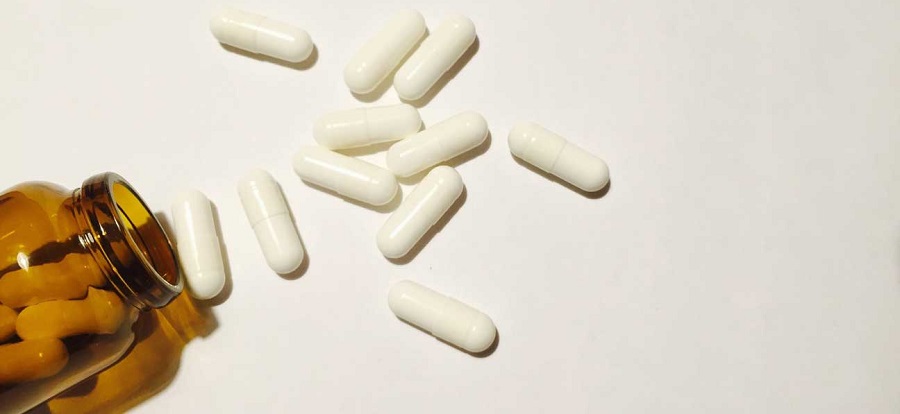Beta-alanine is a non-essential amino acid that is naturally produced in the body. It is also found in some foods, such as meat and fish, and is available as a dietary supplement. Beta-alanine acts as a precursor to carnosine, a molecule that helps to buffer acid in muscles. This can lead to improved exercise performance, particularly in high-intensity activities such as weightlifting and sprinting. Beta-alanine supplements have been shown to increase muscle carnosine levels and improve exercise performance in both trained and untrained individuals. However, it is important to note that more research is needed to fully understand the effects of beta-alanine on health and fitness.
What are the benefits of taking beta-alanine supplements?
Beta-alanine supplements are commonly used by athletes and fitness enthusiasts to improve exercise performance. Some of the potential benefits of taking beta-alanine supplements include:
-
Increased muscle carnosine levels: Beta-alanine acts as a precursor to carnosine, a molecule that helps to buffer acid in muscles. By taking beta-alanine supplements, you can increase your muscle carnosine levels, which may lead to improved exercise performance.
-
Improved power and strength: Research suggests that beta-alanine supplements may help to improve power and strength, particularly in high-intensity activities such as weightlifting and sprinting.
-
Enhanced endurance: Beta-alanine supplements may help to improve endurance during high-intensity exercise by reducing muscle fatigue.
-
Delayed fatigue: Beta-alanine supplements may help to delay fatigue during intense exercise by increasing muscle carnosine levels and buffering acid in muscles.
-
Increased muscle mass: Some studies have found that beta-alanine supplements may increase muscle mass.
It's worth noting that more research is needed to fully understand the effects of beta-alanine on health and fitness.
How much beta-alanine should be taken daily for optimal results?
The recommended daily dosage of beta-alanine varies depending on the individual and the reason for supplementation.
Clinical studies have used dosages of 4 to 6 grams per day in divided doses, typically taken with meals. With this dosage, it takes around 4 weeks to elevate muscle carnosine levels.
It is also important to note that beta-alanine can cause a harmless sensation called paresthesia (a tingling, itching or prickling sensation) in some people, especially when doses exceed 800mg. In order to avoid this, some studies have used lower doses of 2-3 grams per day and taken it over a longer period of time.
It is always best to consult with a healthcare provider or a qualified nutritionist or sports nutritionist before starting any supplement regimen, especially if you have a medical condition or are taking any medications.
Can beta-alanine be taken with other supplements or medications?
In general, beta-alanine is considered safe when taken as a dietary supplement and is well tolerated by most people. However, as with any supplement, it is important to consult with a healthcare provider or a qualified nutritionist or sports nutritionist before starting any supplement regimen, especially if you have a medical condition or are taking any medications.
Beta-Alanine can be taken with other supplements such as creatine, protein, caffeine, nitric oxide and even with pre-workout supplement. However, it is important to be aware of the total dosage of each supplement you are taking to avoid exceeding the recommended limits.
There are no known significant interactions between beta-alanine and medications. However, if you are taking any medications, it is always best to consult with a healthcare professional before starting a supplement regimen.
It is worth noting that beta-alanine may interact with certain medical conditions, such as asthma, so it is important to talk to your doctor before taking it if you have any medical condition.
Does beta-alanine have any side effects?
Beta-alanine is generally considered safe when taken as a dietary supplement. Most people tolerate it well, and side effects are typically mild and short-lived.
The most common side effect of beta-alanine is a harmless sensation called paresthesia, which is a tingling, itching or prickling sensation that can occur on the skin, especially on the face and hands. This sensation usually goes away within 30-60 minutes and can be reduced by dividing the daily dose into smaller doses and avoiding taking it on an empty stomach.
Other less common side effects may include:
- Nausea
- Headache
- Dizziness
- Fatigue
- Flushing
It is important to note that these side effects are rare and are typically associated with high doses. The risk of experiencing side effects can also be reduced by starting with a lower dose and gradually increasing it over time.
As with any supplement, it is always best to consult with a healthcare provider or a qualified nutritionist or sports nutritionist before starting any supplement regimen, especially if you have a medical condition or are taking any medications.
Can beta-alanine improve athletic performance?
Beta-alanine is a non-essential amino acid that acts as a precursor to carnosine, a molecule that helps to buffer acid in muscles. By increasing muscle carnosine levels, beta-alanine supplements may help to improve exercise performance.
Research suggests that beta-alanine may be particularly effective for improving athletic performance in high-intensity activities such as weightlifting, sprinting and high-intensity interval training (HIIT). Studies have found that beta-alanine supplements can:
- Improve power and strength
- Enhance endurance
- Delay fatigue
However, it's worth noting that while beta-alanine may help to improve athletic performance, it is not a magic bullet and should be used in conjunction with a well-designed training program and proper nutrition.
It's also worth noting that not all studies have found significant benefits of beta-alanine for athletic performance. It's important to keep in mind that individual response to supplements can vary and the effectiveness of beta-alanine may depend on the type and intensity of the exercise and the individual's baseline muscle carnosine levels.
It is always best to consult with a healthcare provider or a qualified nutritionist or sports nutritionist before starting any supplement regimen, especially if you have a medical condition or are taking any medications.
How does beta-alanine affect muscle endurance?
Beta-alanine is a non-essential amino acid that acts as a precursor to carnosine, a molecule that helps to buffer acid in muscles. By increasing muscle carnosine levels, beta-alanine supplements may help to improve muscle endurance during high-intensity exercise.
When muscles are working hard, they produce lactic acid, which can cause fatigue and reduce muscle performance. Carnosine acts as an acid buffer in muscle, which helps to neutralize lactic acid and delay fatigue. By increasing muscle carnosine levels, beta-alanine supplements may help to delay fatigue and improve muscle endurance.
Several studies have found that supplementing with beta-alanine improves muscle endurance during high-intensity activities such as weightlifting, sprinting, and high-intensity interval training (HIIT) . It has also been shown to improve endurance in activities that require high levels of muscular endurance such as cycling, rowing, and running.
It's important to note that while beta-alanine may help to improve muscle endurance, it is not a magic bullet and should be used in conjunction with a well-designed training program and proper nutrition.
It's also worth noting that individual response to supplements can vary and the effectiveness of beta-alanine may depend on the type and intensity of the exercise and the individual's baseline muscle carnosine levels.
Can beta-alanine help with muscle soreness and recovery?
Research suggests that beta-alanine may help to reduce muscle soreness and improve recovery after exercise.
When muscles are working hard, they produce lactic acid, which can cause fatigue and muscle soreness. Carnosine acts as an acid buffer in muscle, which helps to neutralize lactic acid and delay fatigue. By increasing muscle carnosine levels, beta-alanine supplements may help to reduce muscle soreness and improve recovery after exercise.
Some studies have found that supplementing with beta-alanine can help to reduce muscle soreness and improve recovery after intense exercise. However, it's worth noting that more research is needed to fully understand the effects of beta-alanine on muscle soreness and recovery.
It's important to note that while beta-alanine may help to reduce muscle soreness and improve recovery, it is not a magic bullet and should be used in conjunction with a well-designed training program and proper nutrition.
It's also worth noting that individual response to supplements can vary and the effectiveness of beta-alanine may depend on the type and intensity of the exercise and the individual's baseline muscle carnosine levels.
It is always best to consult with a healthcare provider or a qualified nutritionist or sports nutritionist before starting any supplement regimen, especially if you have a medical condition or are taking any medications.
Can beta-alanine improve cardiovascular health?
There is some evidence to suggest that beta-alanine may have potential benefits for cardiovascular health, but more research is needed to fully understand its effects.
Carnosine, a molecule that is synthesized from beta-alanine, has antioxidant and anti-inflammatory properties, which may help to protect the heart and blood vessels. Some studies have found that supplementing with beta-alanine can help to improve cardiovascular health markers such as blood pressure, heart rate variability, and arterial stiffness.
Additionally, beta-alanine has been shown to improve physical performance, which can help to increase cardiovascular fitness.
However, it's important to note that the studies on beta-alanine's effects on cardiovascular health are limited, and more research is needed to fully understand its effects.
It's also worth noting that beta-alanine should not be considered as a replacement for proven interventions to improve cardiovascular health such as regular physical activity, healthy diet, and medications if prescribed by a doctor.
It is always best to consult with a healthcare provider or a qualified nutritionist or sports nutritionist before starting any supplement regimen, especially if you have a medical condition or are taking any medications.


